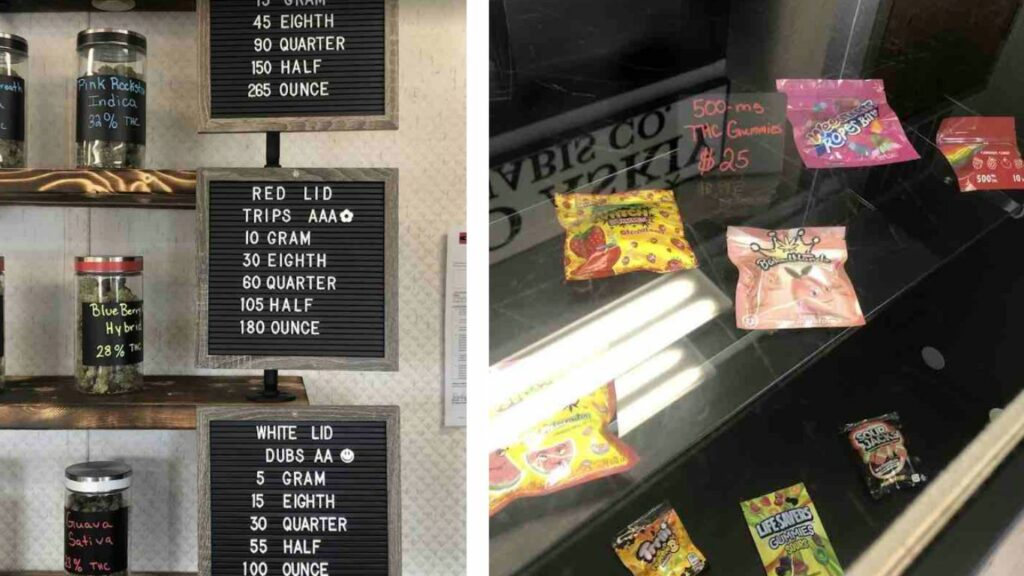One First Nations community in Saskatchewan has recently opened a retail store under their own local regulations.
Miyo Askiy Cannabis Co is located within the Piapot First Nations, which is a Cree First Nation in southern Saskatchewan near Regina. They had their grand opening on Wednesday, July 19. The Piapot First Nations own the building itself, which operates under Piapot cannabis regulations.
Saskatchewan recently passed legislation that said First Nations in the province would no longer need to get a permit from the Saskatchewan Liquor and Gaming Authority (SLGA) in order to operate on-reserve cannabis stores. The SLGA is the provincial agency regulating the liquor and cannabis industries.
The provincial rule change also gives more enforcement authority to local First Nations, something some community leaders have called for.
First Nations assert their jurisdiction and maintain community safety by creating laws under the Indian Act, land codes, and other federal legislation, but there have been difficulties in enforcing these laws in the courts.
Darcy Bear, Chief of the Whitecap Dakota First Nation
However, the province says First Nations cannabis rules must essentially mirror provincial rules and will still require products to be purchased through federally-regulated producers. Not all First Nations leaders agree—Piapot First Nations leadership among them.
In a press release shared in June, the Nation said the business is licensed to operate under the Piapot First Nation Cannabis Act and will comply with the Piapot First Nation Cannabis Regulations, which it says will “meet or exceed the provincial and federal regulations with respect to cannabis.”
“The Piapot Nation is committed to exercising its sovereign right to pursue economic opportunities that benefit the Nation and its membership.” Miyo Askiy says it will give back 15 percent of its proceeds to the community.
Images shared by the store online display an assortment of cannabis flower, extracts and edibles, with prices ranging from $5-15 a gram for dried flower, shatter around $17-20 a gram, and commercially-packaged edibles commonly found in the illicit market.

Peter Flaman, a business adviser with Piapot First Nation, told local media the store would be able to distinguish itself from numerous other retailers in the Regina area by “running a lot cheaper store.”
A representative with Piapot First Nations was not immediately available for comment.
A handful of other First Nations communities in the province have opened their own stores under similar circumstances. Another Cree First Nation in Saskatchewan located near Regina, the Peepeekisis Cree Nation, created its own cannabis regulations in 2019 and opened its first cannabis store in 2020.
The Pheasant Rump Nakota First Nation has published its own cannabis regulations as well, opening a retail store in 2019 about 2 hours southeast of Regina. At that time, Pheasant Rump Chief Ira McArthur told the Regina Leader Post that they purchase products “from a supplier that grows it in quality control conditions, and the product is tested by one of the same laboratories that Health Canada uses.” The store advertises flower, CBD and THC tinctures, capsules, concentrates, edibles, and topicals.
The Muscowpetung First Nation took a similar approach, opening its own store in 2018 based on its own cannabis regulations. The provincial government asked the First Nation to close the store, with the Nation, in turn, filing a statement of claim in the Court of Queen’s Bench in 2019. The claim sought a declaration that the Nation has an inherent right to self-government and that it has the power to sell and regulate cannabis under the constitutional rights of Indigenous people in Canada.
That store, the Mino-Maskihki, is currently listed online as being closed.
While some First Nations in the province (and across Canada) have taken a more sovereign approach to their cannabis regulations, some have made efforts to align their own laws with provincial and/or federal regulations.
Darcy Bear, the Chief of the Whitecap Dakota First Nation near Saskatoon, praised Saskatcehwan’s changes to First Nations cannabis rules, saying they will give them the ability to better enforce the law in their communities.
“First Nations assert their jurisdiction and maintain community safety by creating laws under the Indian Act, land codes, and other federal legislation, but there have been difficulties in enforcing these laws in the courts,” says Bear. “Through our work with the provincial government, the amendments to SOPA will give us access to prosecution and enforcement tools that will give force to our laws in areas such as environmental protection and community safety, and strengthen the place of our laws alongside federal and provincial law.”
Not everyone is happy with the possible changes, though. Chief Derek Sunshine of the Fishing Lake First Nation told CBC last year that he had no intention of pursuing an agreement with the province or SLGA.
“They have no say in my nation,” he said, noting that the band created its own licensing system, and its store operates under that authority. “They have no right to say to my nation that we need a licence.” Numerous First Nation communities in the province and across Canada have opened their own cannabis stores, operating outside provincial and federal regulations, with at least eight communities creating their own bylaws.



